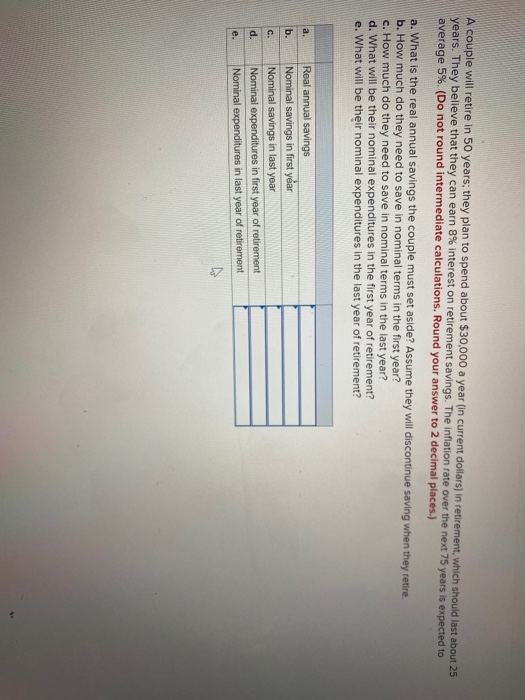Answered step by step
Verified Expert Solution
Question
1 Approved Answer
A couple will retire in 50 years; they plan to spend about $30,000 a year (in current dollars) in retirement, which should last about 25

Step by Step Solution
There are 3 Steps involved in it
Step: 1

Get Instant Access to Expert-Tailored Solutions
See step-by-step solutions with expert insights and AI powered tools for academic success
Step: 2

Step: 3

Ace Your Homework with AI
Get the answers you need in no time with our AI-driven, step-by-step assistance
Get Started


